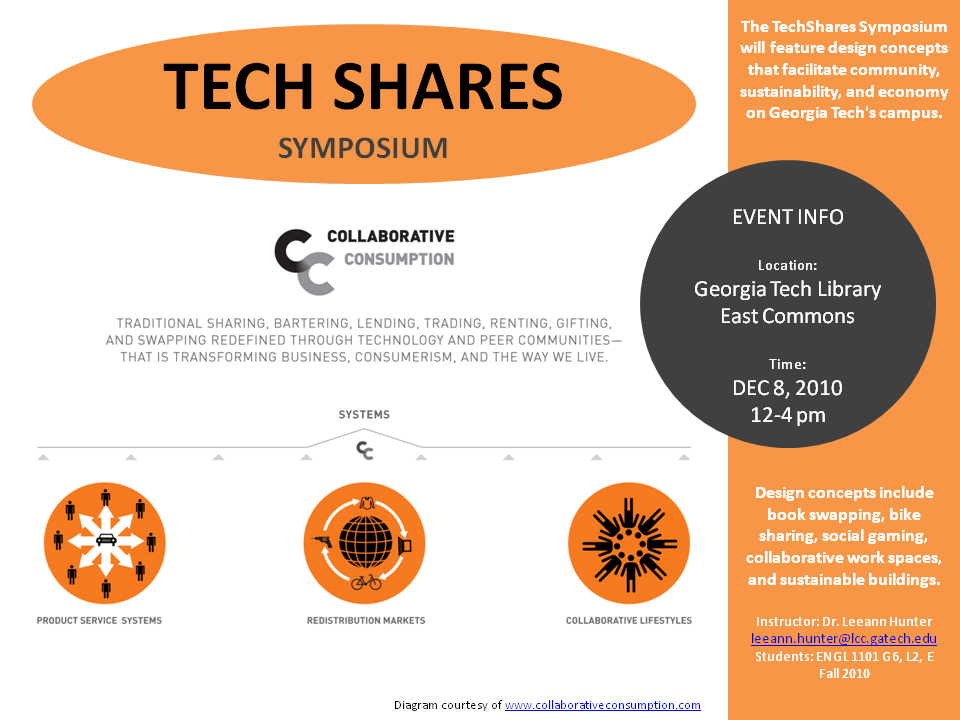 On December 8th, my students will showcase their capstone projects on collaborative consumption, a rising movement in consumer culture that promotes community, sustainability, and economy, defined by Rachel Botsman in What’s Mine Is Yours: The Rise of Collaborative Consumption.
On December 8th, my students will showcase their capstone projects on collaborative consumption, a rising movement in consumer culture that promotes community, sustainability, and economy, defined by Rachel Botsman in What’s Mine Is Yours: The Rise of Collaborative Consumption.
I asked students to bring collaborative consumption to Georgia Tech’s campus. The college campus is fertile ground for collaborative consumption, and it is a market that has yet to be tapped. Here are a few of their ideas:
- Nexus Connections: a campus transportation system consisting of solar-powered carts with zipcar-style access (don’t miss the video!)
- Buzz2Buzz: a campus network for buying, selling, and trading goods
- Buzz Bikes: a bike-sharing program built from a repository of pre-owned bikes
- Food for the Forgotten: a volunteer program that redistributes leftover food from GT dining to the homeless population
- Tech Hubs: collaborative work spaces designed to facilitate group projects (see especially the Google Sketch-Up rendition)